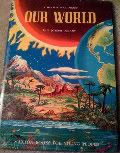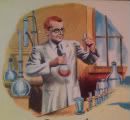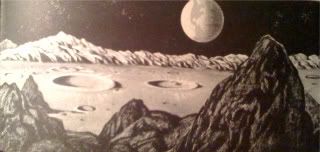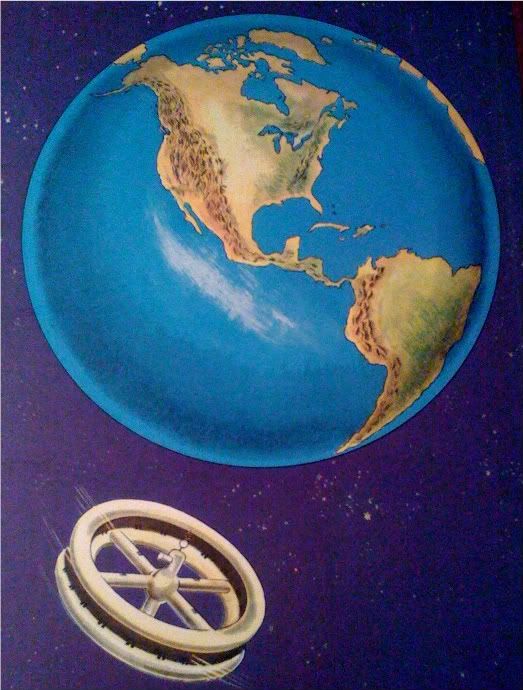Ladies and gentlemen, let me present,
Our World
by E. Joseph Dreany
Maxton Publishers
1958
This is a book about the natural sciences, written before manned spaceflight. It's not a bad book at all. It's in surprisingly good shape! There's a small tear on the upper right hand corner, but otherwise is in perfect condition. Our World covers a fairly broad spectrum of topics. Dinosaurs, erosion, earthquakes, planets, each get a page or two. Black and white illustrations are alternated with bright, saturated full-color pictures. The sentences are short and easy to understand. I'd put this at a third to fifth grade level. It's hard for me not to imagine the book being narrated in the deep, sonorous tones that typify the 1950's
voiceover.
Much of the information in the book is correct, but it is amazing how many of our ideas have changed, and how many new discoveries have been made since that time. For example, my favorite dinosaur, the Brontosaurus is now known as an Apatosaurus. In this book, Pluto is still a planet, of course. The book references "man" throughout, when today, we'd probably use the term, "humankind" or something similar. There are quite a few pages about harnessing the world's resources, and exciting new developments in plastics. Here's a picture of a scientist.
And here, eleven years before the Apollo 11 moon landing, is a picture of what the moon's surface might look like.
There are a few quotes I must share. The first is about the possibility of life on other planets.
It is not probable that there is life, as we know it on the other planets... Only Mars seems likely to permit some form of life, but it is much colder than our earth and has little air and moisture. If life does exist there, it is perhaps in a different form than on earth.The second quote I'll share is from a portion titled, "How Man Hopes to Conquer Space"
No one has yet seen the world from outside its atmosphere. Now, scientists are planning to send a rocket ship to great heights and build a "space station" that will travel around the earth.I love that "space station" is in quotes. There's a picture of a very, very phallic looking rocket. Opposite that is a full page color picture of the Earth.
Notice anything missing? No atmosphere! It's a very map-like globe, not the beautiful blue and white marbled sphere that is so familiar to us today.
I borrowed this book from the library.





No comments:
Post a Comment